Journalists allowed inside al-Shifa hospital as Israel’s war against Hamas continues
International journalists have been allowed inside Gaza’s largest hospital after the warnings that newborn babies’ lives were at risk.
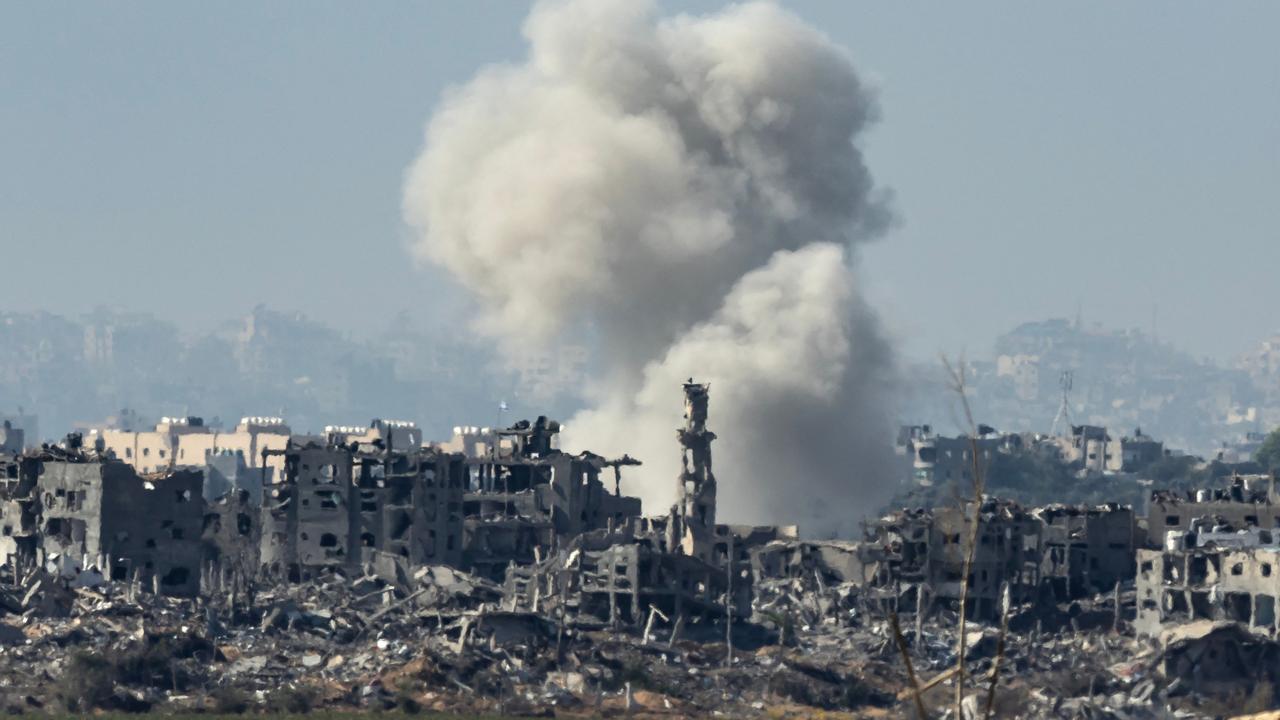
International journalists have been given a view inside Gaza’s largest hospital, where newborn babies are among those who have died as a result of the fighting between Israel and Hamas.
The BBC was among a group of journalists invited inside al-Shifa hospital by the Israeli Defence Forces (IDF), and shown evidence that Hamas had been operating inside.
There are also indications that some of the hostages abducted by the terrorist group during its attack on October 7 were held there.
“We uncovered a lot of computers and other equipment which could really shed light on the current situation, hopefully regarding hostages as well,” an Israeli Lieutenant Colonel, Jonathan Conricus, told the British broadcaster.
“At the end of the day, this is just the tip of the iceberg. Hamas aren’t here because they saw we were coming. This is probably what they were forced to leave behind. Our assessment is that there’s much more.”
The BBC was shown three stashes of assault rifles, ammunition and bulletproof vests.
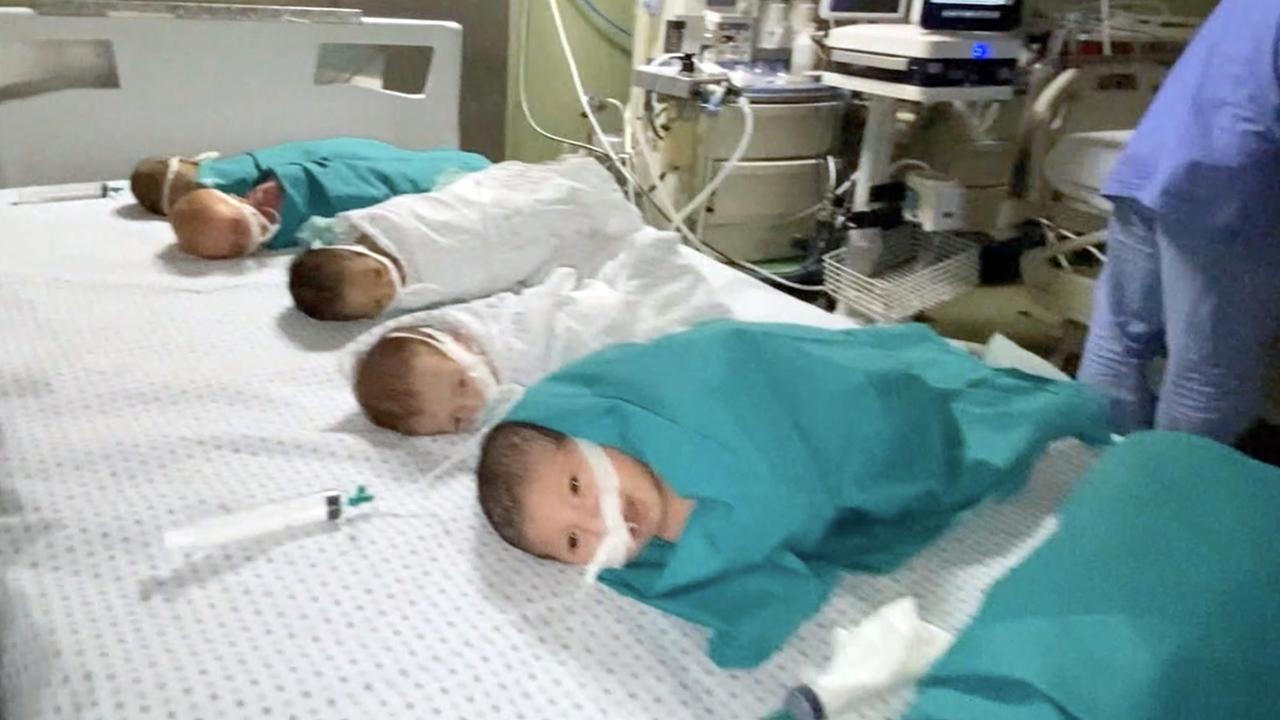
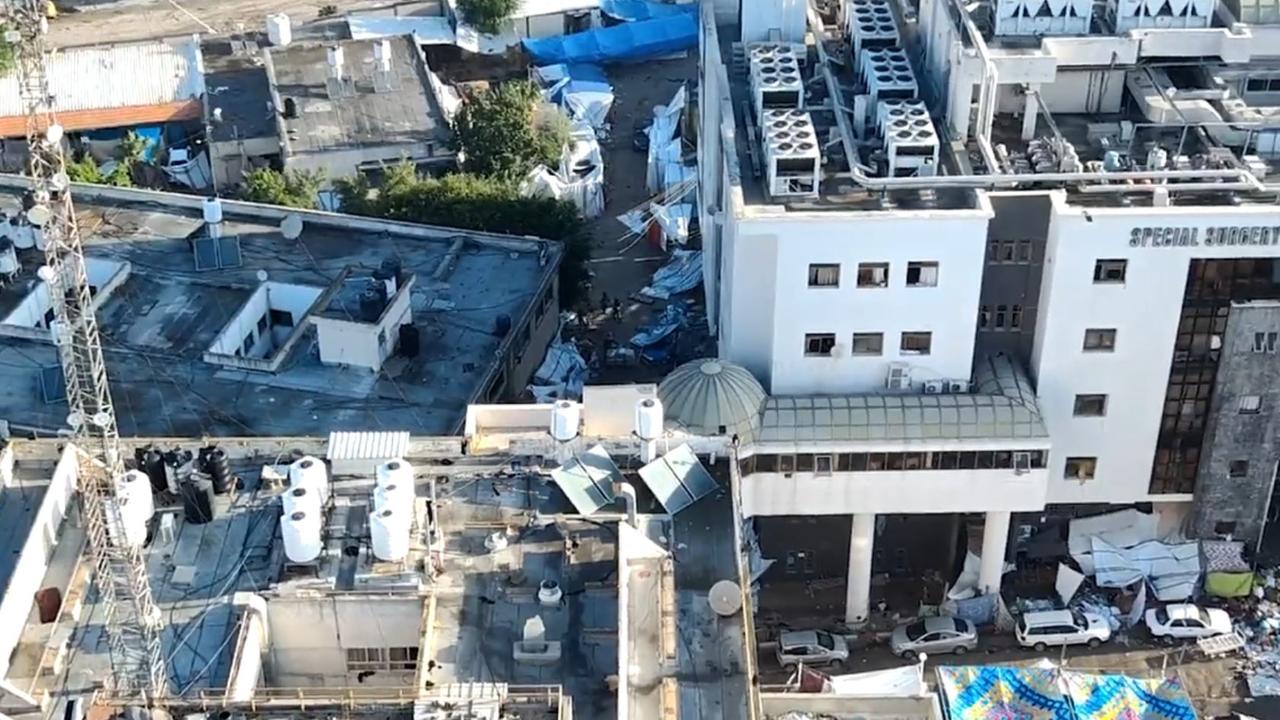
Fighting continued to rage in Gaza on Thursday, more than five weeks after the unprecedented attack by Hamas on October 7 sparked retaliatory bombing and a ground offensive by Israel, which has vowed to destroy the Palestinian militant group.
About 1,200 people, mostly civilians, were killed in Israel during the attack and around 240 people taken hostage, according to Israeli officials.
In Gaza, more than 11,500 people, also mostly civilians, have been killed, officials in the Hamas-run territory have said.
The Israeli army said on Thursday its troops had taken “operational control” of Gaza City’s port.
“In the past few days, in a joint operation, soldiers took operational control of the Gaza harbour, which was controlled by the Hamas terrorist organisation,” the IDF said in a statement.
“All buildings in the harbour area were cleared.”
The announcement came hours after the Israeli military said it had renewed its military operation at the al-Shifa hospital, Gaza’s largest.
The United Nations Security Council managed to agree a resolution on the Israel-Hamas war after multiple attempts, calling for “urgent and extended humanitarian pauses” to allow aid to reach civilians in the besieged territory.
The resolution, which passed thanks to abstentions from veto-holders Russia, the United States and Britain, called on all parties to protect civilians, “especially children”.
Israel’s ambassador to the UN, Gilad Erdan, condemned the resolution as “disconnected from reality”.
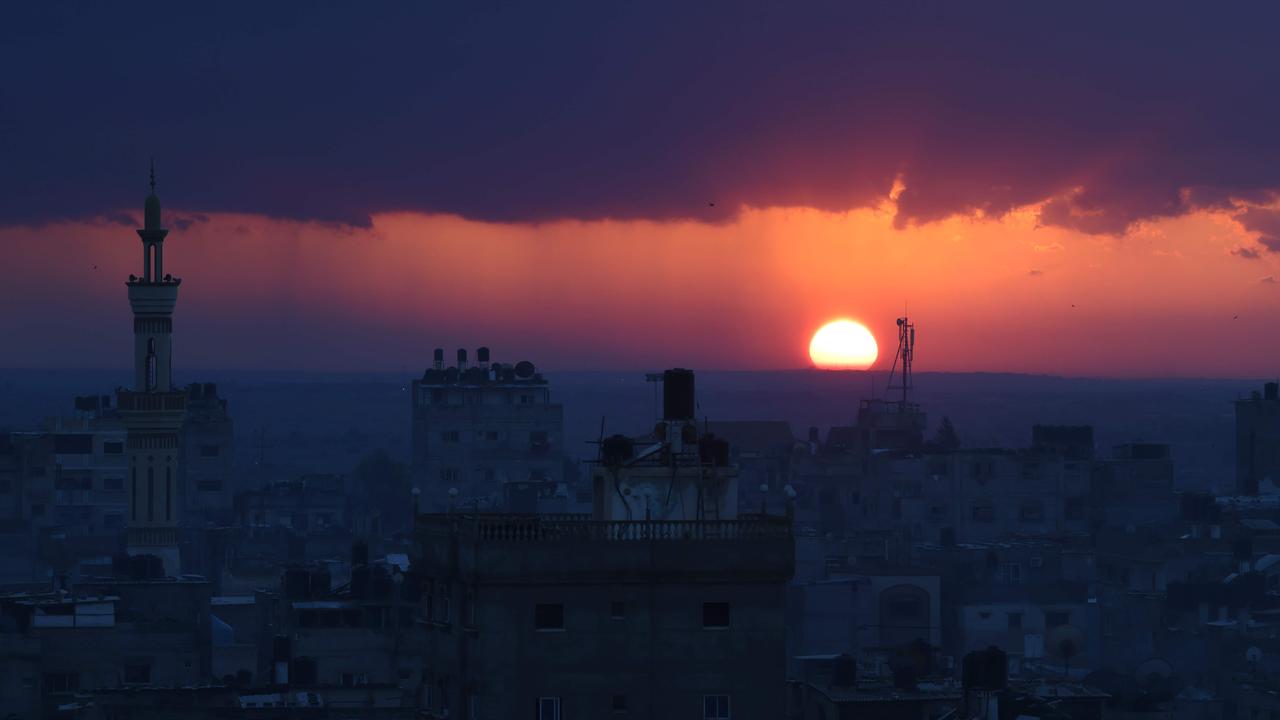
The Israeli army on Thursday announced the deaths of three more soldiers in Gaza, raising the number of troops killed in the Palestinian territory to 51 since the start of the war with Hamas.
An army spokesman confirmed the new overall toll to AFP, after announcing two soldiers were killed in combat in northern Gaza on Wednesday and raising the toll to 50. It later announced the death of a 22-year-old captain, the 51st casualty since Israel’s ground operation in Gaza began.
The toll does not include those killed during Hamas’s attack on southern Israel. In total more than 300 Israeli troops have been killed since October 7.
Meanwhile, Israeli police killed three gunmen who attacked a checkpoint in Jerusalem on Thursday and wounded several security force members.
Four security personnel suffered gunshot wounds, including one who was critically injured, while two more were lightly injured, according to Israeli emergency services.
The checkpoint was guarding road tunnels linking Jerusalem with the Israeli-occupied West Bank, where violence between Israeli settlers and Palestinians has surged since October 7.
Raids by Israel’s military, which says it is responding to “a significant rise in terrorist attacks”, have also multiplied in the West Bank where the Palestinian death toll has soared.
UN flags serious human rights violations
The United Nations’ human rights chief has highlighted allegations of serious rights violations in the Israel-Hamas war that he says need “full accountability”.
Volker Turk said “extremely serious allegations of multiple and profound breaches of international humanitarian law, whoever commits them, demand rigorous investigation and full accountability”.
The UN high commissioner for human rights did not name Israel or Hamas, but he spoke after a visit last week to the Middle East, where he warned that both sides were committing war crimes in a conflict that has left thousands dead.
“Where national authorities prove unwilling or unable to carry out such investigations, and where there are contested narratives on particularly significant incidents, international investigation is called for,” he said in a briefing to UN member states in Geneva.
Turk decried the “conflagration of violence (that) has been unleashed”. He said he had spoken to people crossing out of Gaza during a visit to the Egyptian border, and “rarely have I heard such disturbing testimony about the catastrophic harm that ordinary people have endured”.
He was unable to access Israel or the Palestinian territories, but stressed Thursday the urgent need for his department to go there, “to ensure full and independent monitoring and documentation, and to co-ordinate protection work”.
He told reporters he had “asked Israel to give me access both to Israel, but also to the occupied Palestinian territory. I have not yet received a response”, he said.
The Israeli mission to the UN in Geneva later dismissed his request to visit Israel, telling AFP it “did not see any added benefit of the high commissioner’s visit at this time”.
During his visit to the region last week, the Israeli mission said Turk had “made it clear that his mind had already been made up, and therefore dialogue with (his office) would contribute little.”
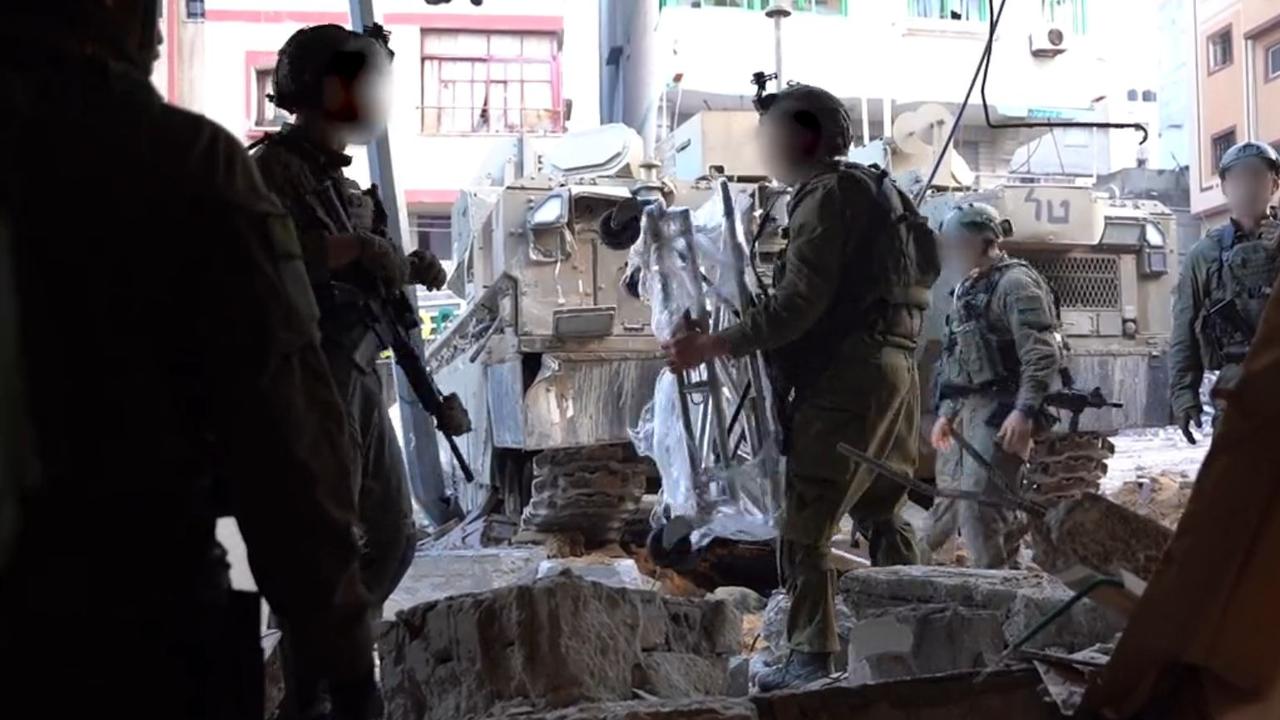
West Bank warning
During Thursday’s briefing, Turk voiced concern about the “intensification of violence and severe discrimination against Palestinians in the occupied West Bank, including East Jerusalem”.
“This creates a potentially explosive situation,” he said.
“I am ringing the loudest possible alarm bell about the occupied West Bank.” He urged an immediate ceasefire.
“It is apparent that on both sides, some view the killing of civilians as either acceptable collateral damage, or a deliberate and useful weapon of war,” he said.
He also insisted that “the Israeli occupation must end”.
“Israelis’ freedom is inextricably bound up with Palestinians’ freedom. Palestinians and Israelis are each others’ only hope for peace.”
Israel harshly criticised UN attempts to balance criticism about violations, insisting that international law was “not a suicide pact”.
If a state cannot defend itself “or is criticised for doing so in line with international law, inevitably terrorist organisations will become more and more emboldened,” Israeli ambassador Meirav Eilon Shahar told the gathering.
“There is no moral equivalence between Israel and Hamas. We will not let Israel be delegitimised by misrepresentation of reality,” she said.
Palestinian ambassador Ibrahim Khraishi flatly rejected that view. “You should wake up in this room. This is a massacre, this is genocide,” he said, accusing Israel of acting “above the law”.
“The problem didn’t start on October 7 — It started 75 years ago,” he said. He received support from other countries, including from Jordan’s representative who insisted that “Israel must halt its aggression”.
- with AFP



